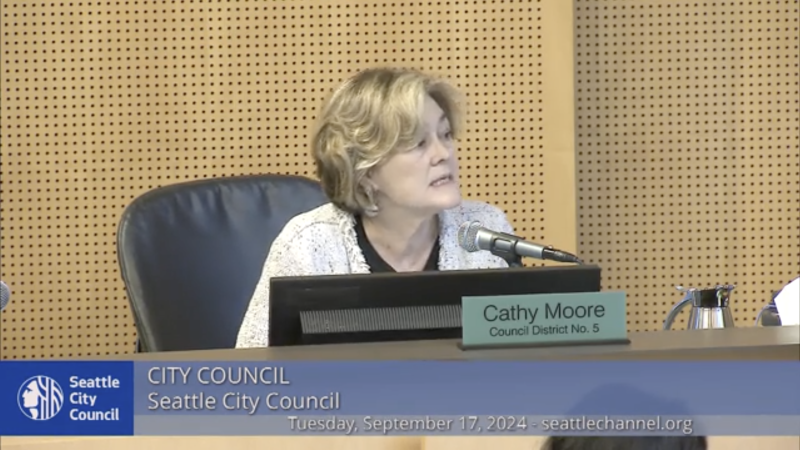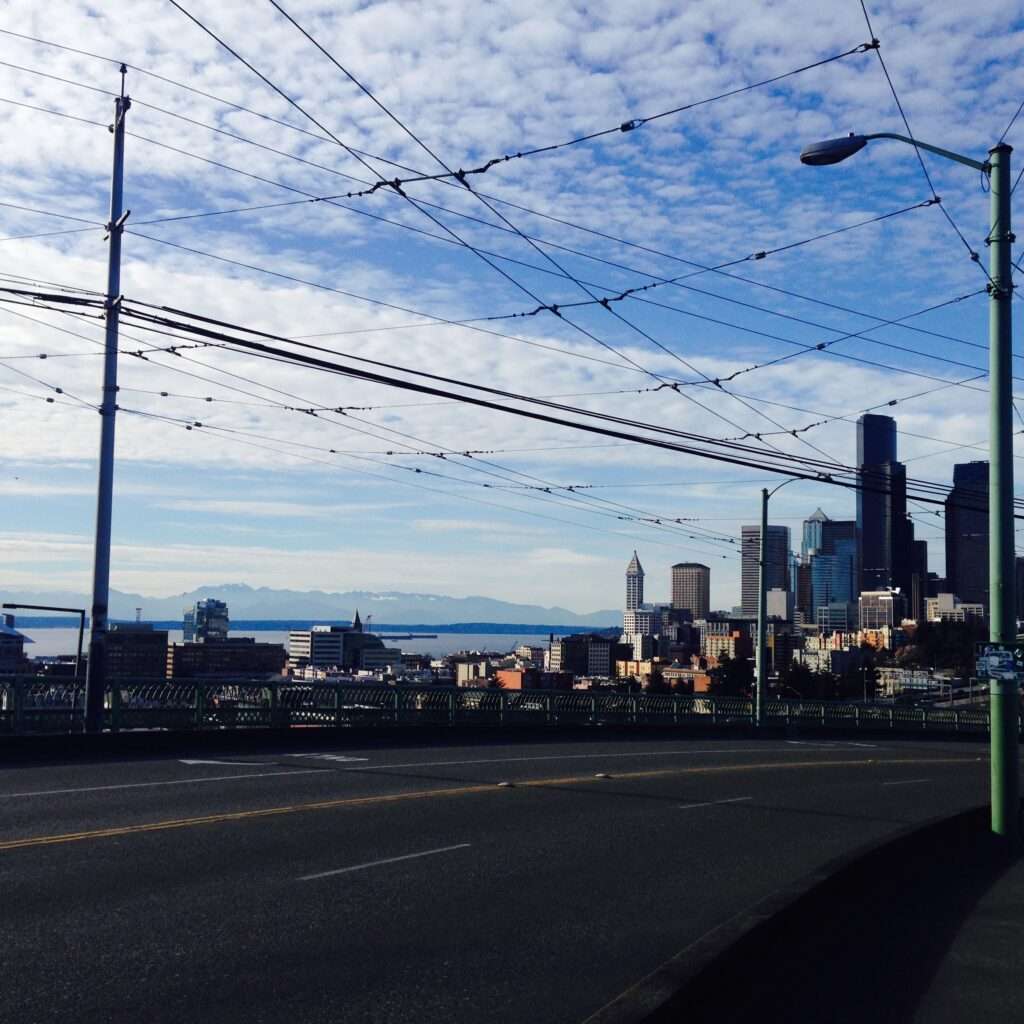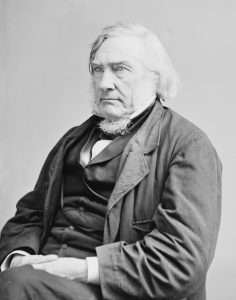
Can this really be constitutional? Seattle is about to make it illegal for some people accused of low-level prostitution and drug offenses to visit certain popular areas of the city. It's calling these places "stay out" zones, and violating an order to stay out could lead to almost a year in jail and a $5,000 fine.
Under policies passed by the council last week, people could be subject to stay-out orders for up to two years, cutting off their access to any businesses, family, friends, employers, entertainment, or educational opportunities in those areas. And the orders don't necessarily even require a conviction; a judge could issue one to someone merely charged with a crime as a condition of being released from jail before the trial.
The city is also bringing back penalties for loitering for prostitution, having done away with an earlier version of this restriction in 2020. Loitering for prostitution laws allow police to arrest people merely for being a suspected sex worker or or engaging with one; they don't require cops to prove any sex for pay or offers of sex for pay took place. They've been widely criticized for encouraging police harassment, particularly of groups—such as transgender people—who cops may be more likely to see as sex workers. The new loitering law is much like the old one, except it targets prostitution customers and promoters rather than sex workers per se.
SOAP & SODA
SOAP and SODA sounds like a weird but possibly fun party theme. They're not. These are the monikers given to the six "stay out" zones the Seattle City Council approved last Tuesday. SOAP stands for "Stay Out of Area of Prostitution" and SODA is "Stay Out of Drug Area."
These are not small or isolated parts of town. The SOAP zone encompasses a huge chunk of Seattle's Aurora Avenue North and surrounding blocks, from North 85th Street all the way up to North 145th Street. And six SODA zones are located throughout the city, including areas around downtown Seattle, Chinatown, the University District, and Capitol Hill. "The SODA and SOAP zones include a number of sites where nonprofits provide services," notes The Seattle Times.
Mayor Bruce Harrell has not yet signed the new bills into law, but a spokesperson for his office told the Times that Harrell is "supportive of additional tools to help keep neighborhoods safe."
The SOAP bill, sponsored by Council Member Cathy Moore, would also create a new prostitution loitering offense, targeting prostitution customers. Someone is guilty of this misdemeanor "if he or she remains in a public place and intentionally solicits, induces, entices, or procures another to commit prostitution," the bill says.
Police may decide that someone is guilty of prostitution loitering if a person "repeatedly…engages passersby in conversation," makes a "bodily gesture" that is "indicative of soliciting for prostitution," stops a car to talk to someone thought to be a sex worker, or "circles an area in a motor vehicle and repeatedly beckons to, contacts, or attempts to stop pedestrians," among other things. (Woe to the lost driver trying to get directions, or to someone stopping to talk with a friend who the police think is dressed too skimpily!) People will be considered especially suspicious if they are "in a known prostitution area or designated Stay Out of Area."
The bill also creates the gross misdemeanor crime of "promoting loitering for the purpose of prostitution," aimed at people "acting in a manner and under circumstances that demonstrate the purpose of directing, supervising, recruiting, arranging for, enticing, or inducing another person to engage in loitering for the purpose of prostitution."
Lastly, the bill creates the prostitution "stay out" zone and stipulates that a judge may bar "anyone charged with, or convicted of" either prostitution loitering offense to stay out of this area, "either as a condition of pretrial release…or as a condition of sentence." A judge can also issue a SOAP order to anyone charged with or convicted of a crime that occurred in a SOAP zone if the court decides there is "a nexus between the offense and prostitution-related crimes."
Violating a SOAP order can net someone an additional gross misdemeanor charge and net them up to 364 days in prison and/or a $5,000 fine.
Unlike the old prostitution loitering law, this theoretically doesn't target people selling sex. But it's easy to imagine how sex workers still wind up charged under these laws for working together or talking to one another, which police could easily classify as "promoting" one another's prostitution. The fear that this law will target sellers is backed up by an amendment requiring the city's Office of the Inspector General to report arrest numbers "with arrests for prostitution loitering as a buyer disaggregated from arrests for prostitution loitering as a seller."
Interestingly, the findings section of the bill states that it's needed because "the federal government's closure of Backpage in April 2018 resulted in increased prostitution activity in public spaces"—an acknowledgment that shutting down avenues for online advertising of sex work doesn't actually stop it from happening. And yet, somehow, the council thinks that the same principle doesn't apply to driving it off of certain streets?
The SODA bill would create "Stay Out of Drug Area" zones similar to the "Stay Out of Area of Prostitution" zone. A judge could issue a SODA order to "anyone charged with, or convicted of, any criminal violation of the Controlled Substances Act" that occurs in a SODA zone, or to anyone "charged with, or convicted of, assault, harassment, theft, criminal trespass, property destruction, or unlawful use or possession of weapons occurring in a designated SODA zone in which the court finds a nexus between the offense and illegal drug activity."
'Performative Regulations'
What may be most amazing about these laws is that they manage to be such an egregious violation of civil liberties for so little payoff. What do city leaders expect to happen—that people will suddenly stop selling or buying drugs and sex if they can't do it on certain streets?
It seems fairly obvious that some drug and prostitution activity will just migrate to other areas, some folks subject to the stay-out orders will simply ignore them (these are, by definition, people already OK with breaking some laws), and some banned individuals will find workarounds (like sending associates into banned areas for any business that needs to be done there). What most certainly won't happen—as evidenced by decades and decades of failed prohibition policies—is any substantial decrease in drug use, drug sales, or prostitution.
At least one city council member gets this. Tammy Morales voted against both bills, calling them "performative regulations" and "Band-Aids" that would not be "truly meaningful solutions to the problems we seek to address," according to the Times.
But Morales was the sole dissenting vote against both bills.
The SOAP and SODA bills have ample detractors in social services organizations, civil liberties groups, and public defenders.
"Since the bills emerged this summer, opponents have accused the council majority of trying to banish poor people from core Seattle neighborhoods rather than address root causes of addiction, gun violence and sexual exploitation through more investments in social services," reports the Times. "They've said the exclusion bills will empower police to arrest people for merely existing in public spaces—especially people of color, who are disproportionately arrested for relevant crimes, according to council staff."
"Proposals like SOAP and SODA do not work and cruelly target our most vulnerable populations, including those struggling with poverty and substance use disorder," said Jazmyn Clark of the American Civil Liberties Union (ACLU) in a press release. "Exclusion zones like SOAP and SODA have been tried before and have consistently failed to achieve their intended goals," Clark added.
The SOAP and SODA laws "raise serious constitutional concerns," the ACLU of Washington told city council members in an August 7 letter. "SODA and SOAP orders are likely unconstitutional as conditions of pretrial release for people who have never been convicted of offenses related to drug possession or sex work. SOAP and SODA orders raise identical concerns of violating the constitutional right to travel and associate."
More Sex & Tech News
• An absurd new law in California bans tech companies from displaying an "addictive feed" to minors unless a parent consents to it. It's another example of lawmakers acting as if problematic internet use is just a matter of product design, not a complex mix of mental health issues, life triggers, and other things outside of tech companies' control. The new law also stipulates other rules for minors, such as not sending them notifications during school hours except during the summer. "Opponents of the legislation say it could inadvertently prevent adults from accessing content if they cannot verify their age," notes the Associated Press. "Some argue it would threaten online privacy by making platforms collect more information on users."
• Former University of Wisconsin–La Crosse campus chancellor Joe Gow is fighting to regain his faculty position. The university fired Gow after he posted sex videos made by him and his wife on porn websites. They're also authors: "Gow and his wife's e-books were written under pseudonyms: 'Monogamy with Benefits: How Porn Enriches Our Relationship' and 'Married with Benefits—Our Real-Life Adult Industry Adventures,'" The New York Post reports. They "also star in a YouTube channel called 'Sexy Healthy Cooking' in which the couple cooks meals with porn actors." Gow is arguing that all of these are protected First Amendment activities—which is true. But the First Amendment doesn't apply to employment contracts; bosses can generally fire you if they don't like your speech. Where this case gets a little dicey is the fact that the bosses in question are a public university system.
• Actress Gillian Anderson's new book, Want, features 350 anonymous sex fantasies Anderson collected from women.
• I talked with people who consider themselves pro-life but worry about the current wave of abortion bans.
• "Freak-offs are inherently dangerous," a federal prosecutor in the Diddy case said in court. (More on that case in last Wednesday's newsletter.)
• "A federal appeals court on Friday upheld an Alabama policy requiring people to show proof of 'gender-reassignment surgery' before the sex designation can be changed on their driver's license," AL.com reports.
Today's Image
 Seattle | 2015 (ENB/Reason)
Seattle | 2015 (ENB/Reason)The post Seattle's 'Stay Out' Zones Will Curb Civil Liberties, Not Crime appeared first on Reason.com.












 Bengali (Bangladesh) ·
Bengali (Bangladesh) ·  English (United States) ·
English (United States) ·